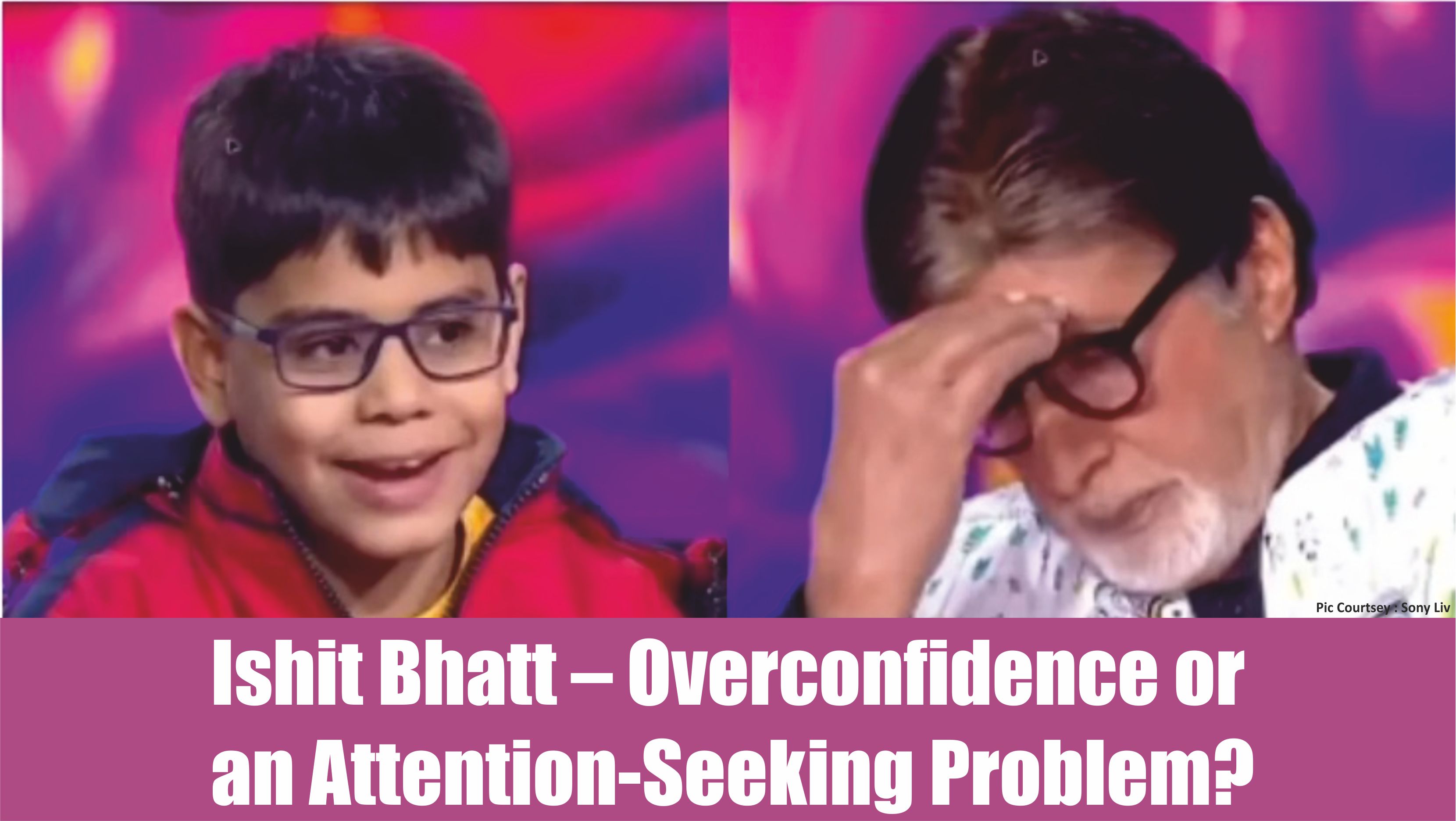Ishit Bhatt – Overconfidence or an Attention-Seeking Problem?

There are a variety of personalities in every classroom, including the silent observer, the industrious student, the imaginative dreamer, and the self-assured leader who enjoys taking charge. Ishith Bhatt frequently sticks out among them due to his strong sense of self-confidence and outspoken personality. His professors say he is intelligent and well-spoken, but they also see that he may be overconfident at times. This leads us to a crucial query: is Ishit's arrogance a trait that will contribute to his success or an indication of more serious attention-seeking behavior?
One of the best traits in a student is self-confidence. This enables individuals to take charge, voice their thoughts, and face obstacles head-on. The thin line between confidence and overconfidence, however, can occasionally be hazy, particularly in adolescence when kids are still developing their sense of self. If left unchecked, overconfidence can result in haughtiness, a dislike of criticism, or even trouble collaborating with others.
Ishit's propensity to control conversations, challenge authority, or constantly seek approval isn't always the result of his ego. Such behavior is frequently explained by psychologists as a manifestation of attention-seeking tendencies. Youngsters who experience neglect—at home, at school, or among their peers—may make up for it by acting assertively or exaggerating their confidence in order to get attention. It's how they feel heard, respected, and acknowledged.
Ishit is not a "problem child" because of this. Instead, it suggests that we need to better understand his emotional requirements. He may be a young man attempting to establish his value behind his audacious remarks and assured demeanor. Parents and educators must recognize the difference between behavior motivated by unfulfilled emotional needs and inherent self-confidence.
According to experts, children's self-confidence becomes balanced and robust when they receive regular attention, praise, and constructive instruction. However, people could create an exaggerated self-image as a defense mechanism if they are continuously contrasted, criticized, or disregarded. They secretly worry about being overlooked or underappreciated, which is why they strive to come out as strong.
At EducationKhoj.com, we stress that each student's behavioral characteristics reveal a more complex narrative. Education aims to foster emotional intelligence, self-awareness, and respect for others in addition to academics. By giving kids like Ishit meaningful tasks, promoting teamwork, and rewarding sincere effort over blatant self-promotion, teachers may make a significant difference. Additionally, parents can support their children by listening to them calmly, refraining from passing judgment, and offering them unwavering support.
With empathy as a guide, overconfidence can be turned into leadership. Rather of categorizing kids like Ishit as "overconfident" or "attention seekers," society ought to concentrate on comprehending their viewpoint. Such conduct can be transformed into a strength with a combination of love, discipline, and emotional support.
In the end, Ishith Bhatt's tale serves as a reminder that all children desire to be acknowledged, recognized, and seen. Their confidence forms a strong basis for success and progress throughout their lives when it is carefully cultivated and tempered with humility.



